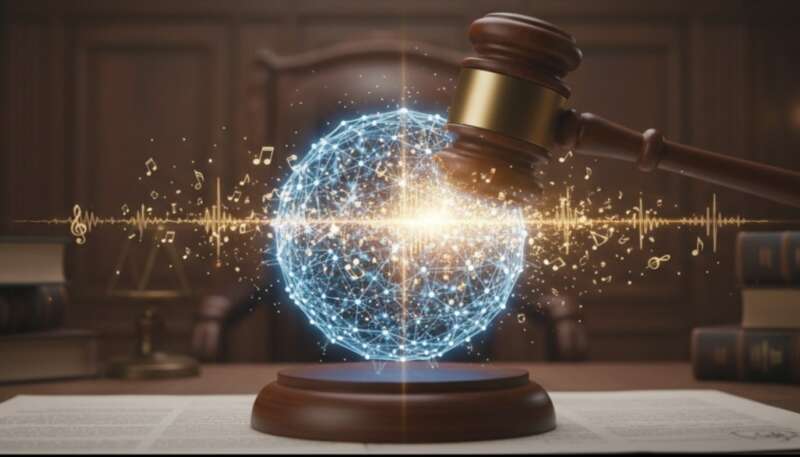- Munich Court orders OpenAI to stop using GEMA lyrics for model training.
- Verdict rejects data mining exceptions, ruling AI use harms rights holders.
- OpenAI faces damages and disclosure orders but plans to appeal the decision.
Nov. 11 (Crypto-News.Net) – OpenAI infringed copyright by using song lyrics to train its ChatGPT models, a German court ruled on Monday.
The civil division of the court determined that the Microsoft-backed company engaged in unauthorized reproduction and storage of lyrics from nine separate songs, including popular German tracks like “Atemlos through the Night” and “How Nice That You Were Born,” according to the Bavarian Ministry of Justice press release.
The ruling specifically concerns ChatGPT versions 4.0 and 4.0o, which the court found had “memorized” the lyrics during training and could reproduce them in output.
Court Rejects Data Mining Defense
OpenAI argued that its use of the data fell under “text and data mining” exceptions (Section 44b UrhG) in German copyright law. The court rejected this defense, stating that the exception allows for data analysis but not for the training of generative AI models that compete directly with the original rights holders. The judges reasoned that the technology used the training data to generate output that could substitute for the original works, thereby impairing the reasonable interests of the authors.
The presiding judges ordered OpenAI to cease from using the content, provide information about the extent of the usage, and pay damages to GEMA, the organization representing the music rights, according to a report by Euronews. The exact financial penalty was not disclosed in the initial ruling documents.
Industry Reaction and Appeal
GEMA welcomed the verdict as a significant precedent for enforcing copyright in the era of generative AI. The organization stated that the ruling clarifies that digital platforms cannot use creative works without fair remuneration and called for licensing agreements to ensure artists are compensated, according to Reuters.
The decision is not yet final. OpenAI intends to appeal the judgment to the Higher Regional Court, arguing that its training methods constitute fair use under European law, according to legal analysis from AI Fray.
Decentralized AI Alternatives
The mounting legal challenges facing centralized AI companies have accelerated interest in decentralized alternatives that aim to manage data rights through blockchain technology. For example, Telegram CEO Pavel Durov recently announced a TON decentralized AI network designed to operate without a single controlling entity, potentially offering a different compliance structure.
Other projects are building infrastructure to incentivize data contribution while attempting to resolve ownership issues transparently. The market has seen movement in assets like Bittensor, a decentralized AI protocol that facilitates machine learning across distributed networks.
These platforms aim to establish transparent data provenance trails, potentially circumventing the “black box” copyright liabilities currently plaguing centralized competitors. Integration with decentralized finance (DeFi) is also appearing in consumer-facing applications, such as the Ruvi AI superapp, which seeks to combine payment rails with AI assistants. As courts worldwide begin to set boundaries for AI training data, these blockchain-based solutions may offer mechanisms for verifying and compensating original content creators.


